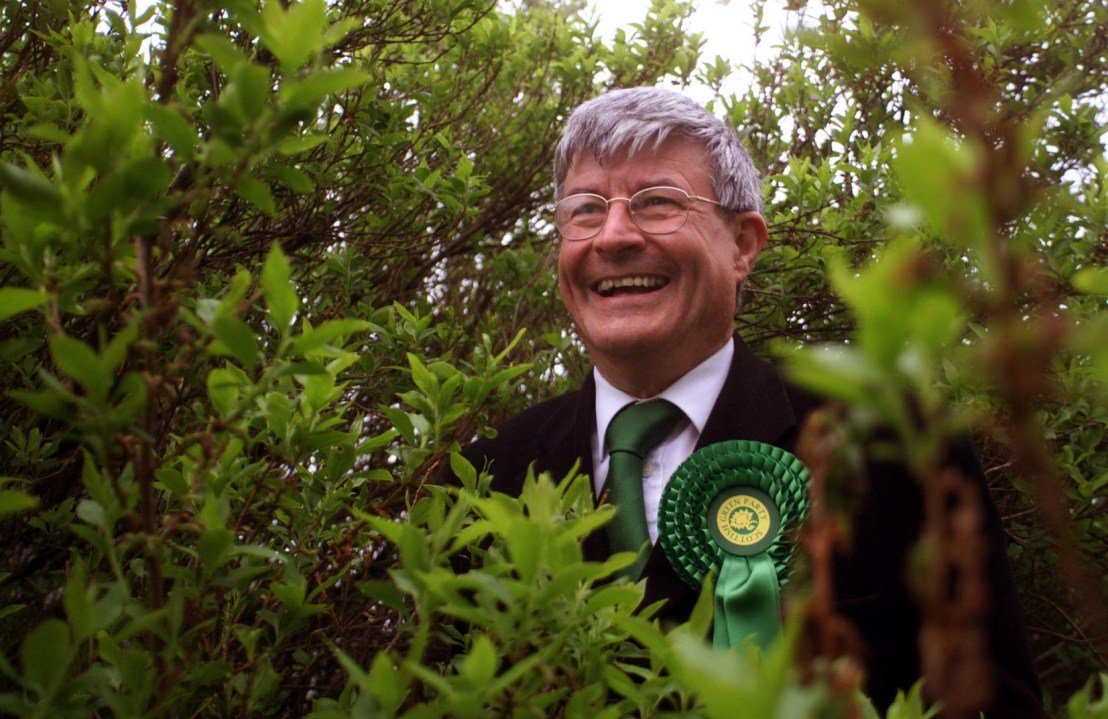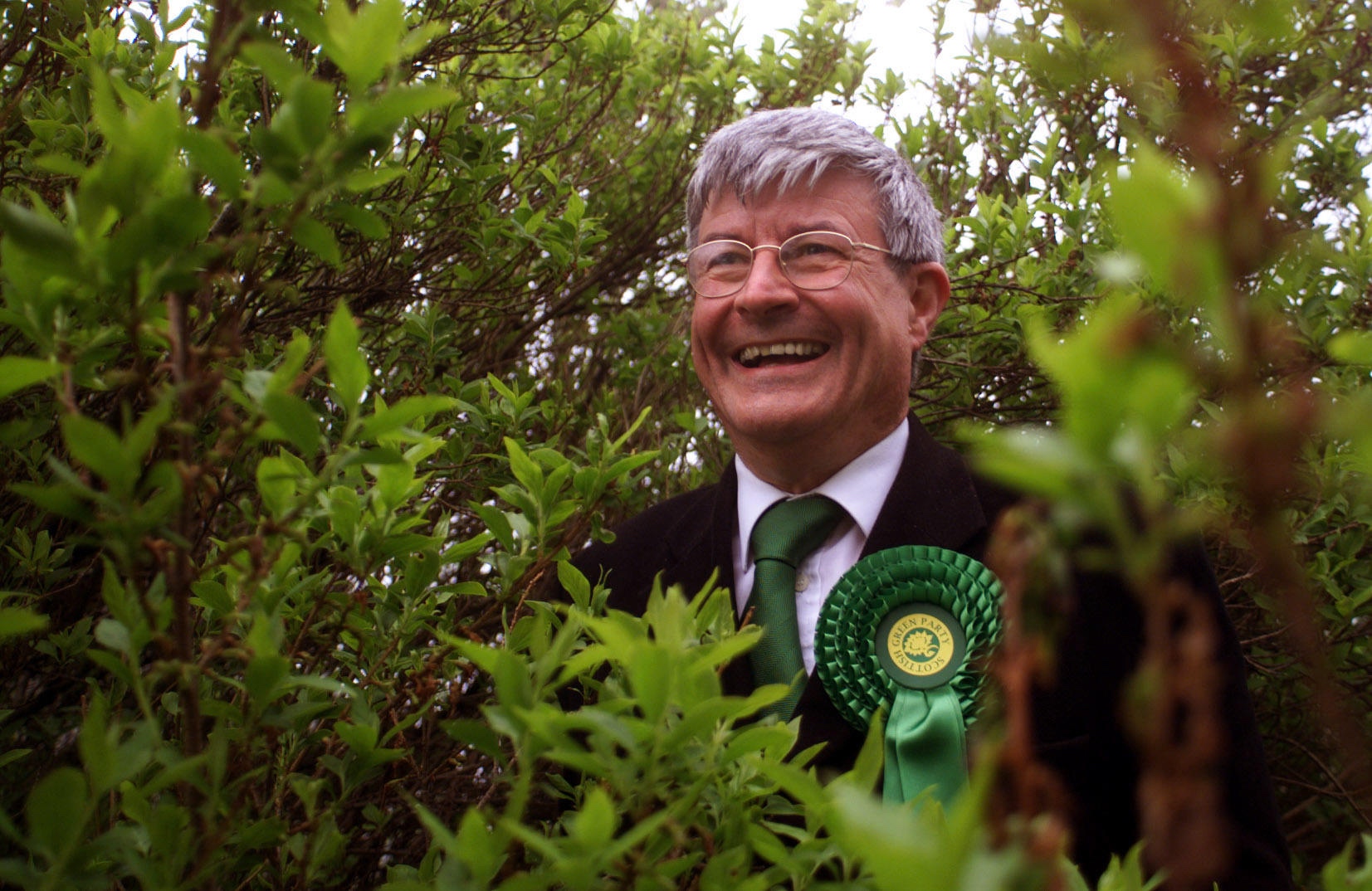Robin Harper, the first Green parliamentarian elected in the UK, has resigned from the Scottish Greens, saying his former party has ‘lost the plot’. His resignation letter cites ‘serious concerns’ about the party’s handling of trans issues and hopes ‘the Scottish parliament will return to listening mode’ following the Cass and Sandyford reviews into gender identity services for children.
Robin Harper was and remains a man of the decent, outward-looking left, tolerant of disagreement, more interested in cooperating with his opponents than condemning them.
He urges ‘a complete overhaul’ of child and adolescent mental health services. Harper has previously called for the closure of the Sandyford, a Glasgow-based NHS clinic providing gender identity services to children and young people. Harper warned against ‘sending people straight down the line of the horrific idea of what amounts to self-harm on a gross scale’.
Under Harper’s successor Patrick Harvie, the Scottish Greens have become hardline proponents of transgender ideology and were the driving force behind Scotland’s gender bill, which lowers the age for changing gender to 16, reduces the wait period from two years to six months, and removes medical experts from the process. The Bill has been blocked by Westminster over its impact on equalities law across Britain.
Harper’s letter expresses broader concerns about the Scottish Greens. He accuses the party of ‘moving into the gap left by the Socialists’ and ‘adopting their stridency of expression’. The Scottish Greens are ‘no longer a campaigning pressure group’ and as a political party, they ‘should listen as much as they shout’ if they hope to promote Green policies.
That last line will sting in particular. Since going into coalition with the SNP at Holyrood in 2021, the Scottish Greens have been singularly unsuccessful in advancing the environmental cause. The deposit return scheme collapsed amid wide-ranging criticism of Lorna Slater, the Green minister in charge of the project. The Highly Protected Marine Area (HPMA) policy, which would have banned fishing in ten per cent of Scottish waters, fell victim to an SNP u-turn.
In December, a report by the Climate Change Committee said Scotland’s climate targets were ‘in danger of becoming meaningless’ because the Scottish Government ‘lacks a clear delivery plan’ and hasn’t ‘offered a coherent explanation’ as to how its policies will meet its emissions reduction targets. The Scottish government has also come under fire after figures showed 47 million cubic metres of sewage was dumped in Scottish waterways in 2022.
If the Scottish Greens aren’t much to write home about when it comes to the environment and the climate, they are at least reliable advocates of Scottish nationalism, the party having shown more urgency in matters constitutional than ecological in recent years. In his letter Harper accuses them of a ‘failure to co-operate meaningfully with other interests, including the Westminster government’. For his part, he pledges ‘to fight any attempt to needlessly destroy the United Kingdom’. In the past few years, Harper has emerged as a left-wing campaigner against independence — a heresy in the eyes of the Scottish political establishment.
When Harper says a ‘huge number’ of people have told him the Scottish Greens have ‘lost the plot’, he sums up the transformation the party has undergone since the days of his leadership. If he no longer recognises the party he has dedicated his life to, he is far from alone. In the last 15 years, the Scottish Greens have gone from conscientious prosecutors of the case for environmental protection, sustainability and climate action to an oddball cult of postmodern identity politics, the parliamentary wing of Judith Butler.
It’s a shame to see Harper in this position, looking on as fanatics gleefully vandalise the party he spent years building up. He joined the Scottish Greens in 1985. Back then, it was still just the Edinburgh branch of the Ecology Party, though given the numbers involved it was more of a twig than a branch. There were 35 members and upon signing up Harper was asked if they could use his flat for the upcoming AGM. It was a packed event: four people showed up at his door. When he made history in the inaugural Scottish parliament elections in 1999, it was interpreted as a fluke of Holyrood’s electoral system but four years later he increased the party’s seat tally sevenfold.
Harper, who is now 82, garnered respect as an MSP not just across the political spectrum but among the general public for his principled approach to politics and his colourful (some might say garish) scarves. He was and remains a man of the decent, outward-looking left, pluralist in his instincts, tolerant of disagreement, more interested in cooperating with his opponents than condemning them. His politics are no less radical for being expressed civilly, however much that might confound those for whom invective has become an ideology in itself. Harper believes in making material change, not issuing cultural signifiers and calling it a political platform. No doubt it was painful to leave his old party after nearly forty years — but it’s not his party anymore.








Comments